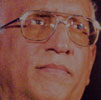

Automation innovation
Since automation is such a fragmented business, most innovation comes from start-ups. The major companies all have a conglomeration of products, each with relatively small volume, but lumped together to form sizeable businesses. Indeed, many mini-conglomerates thrive through astute and shrewd accumulation of innovative niche players.
An exception to the startup-innovation rule was distributed control systems (DCS), a mix of several important innovations developed in the early 1970s by a team of engineers within Honeywell. This generated a new category which achieved $100m annual revenue within just a couple of years, and the segment has since expanded to several billions of dollars worldwide.
The other major automation segment to achieve significance, also in the 1970s, was the programmable logic controller (PLC). This breakthrough innovation was the brainchild of the prolific inventor Dick Morley, who was with Bedford Associates, a small development company that worked for Modicon (now part of Schneider).
Fisher Controls was started by Bill Fisher, making innovative valves and actuators. Rosemount grew through innovations in differential pressure sensors. Interestingly, both Rosemount and Fisher tried to grow by branching out into DCS, but their offerings were relatively insignificant till Emerson put them together with PCs and software (Intellution and other ingredients) to generate leadership with Delta V.
Presentations
You go to a meeting. Everyone has arrived. The lights are dimmed and the presentation begins. The presenter keeps showing slide after slide. Some in the back row actually doze off, while many others' minds drift off. They are all being 'slideswiped'.
You have heard the advice about how to make a presentation: "Tell what you are going to tell them; then tell them; and then tell them what you told them." That almost gives you a license to be boring. Forget it.
Especially when you are giving a marketing or sales presentation, take some lessons from Steve Jobs. His iPhone introduction had five lessons for making a superb pitch.
* Build tension - generate drama, and a couple of surprises.
* Stick to one theme per slide - one slide, one key point.
* Add pizzazz to your delivery - vary your speed and tone.
* Practice - Do not wing it; rehearse your presentation.
* Be honest and show enthusiasm - loosen up, have fun.
You know what? Steve Jobs is far more engaging today as a presenter than he was many years ago, because he worked at it. We all have room to improve our presentations. Develop your own special style. And practice!
Have fun and make money
In his 1978 book, 'The Gamesman', Michael Maccoby describes four types of business personalities: Craftsman (or Artisan), Organiser, Jungle Fighter (or Warrior) and Gamesman. No individual is purely one type, but rather, includes a mixture depending on the circumstances and personalities.
The Artisan values detailed analysis, skill and experience - typically engineers. The Organiser is most effective at developing policies and retaining the status quo - typically financial people. This type of person is needed in times of stability, but is often a big impediment to organisations that require courage to take risks in times of fast-moving change. The Warrior is useful during times of turmoil, when tactical changes must be enforced and personnel reductions become necessary.
The Gamesman values strategic overviews and thrives on rapidly moving tactical changes. In today's rapidly changing business environment, Gamesman strengths are mostly recruited for top-level positions.
Today's business is a game on a global playing field. Employees are not hourly-paid pawns, but sophisticated knowledge-workers, actively involved to win against fierce worldwide competition. They want to know the game-plan, to see how they can participate and contribute. They want to be challenged - to have fun.
At Action Instruments, the employee-owned company I founded, we had a basic theme, "Let us have some fun and make some money." It is important for businesses to have fun. All things being equal, a business that makes money consistently is much more fun. This is an attitude that feeds on itself - the businesses that win have fun, and businesses that have fun tend to be winners.
Focus on creating a positive and productive business environment, help individual players to flourish, and have fun. Wins will come.
Jim Pinto is an industry analyst and commentator, writer, technology futurist and angel investor. His popular e-mail newsletter, JimPinto.com eNews, is widely read (with direct circulation of about 7000 and web-readership of two to three times that number). His areas of interest are technology futures, marketing and business strategies for a fast-changing environment, and industrial automation with a slant towards technology trends.

© Technews Publishing (Pty) Ltd | All Rights Reserved